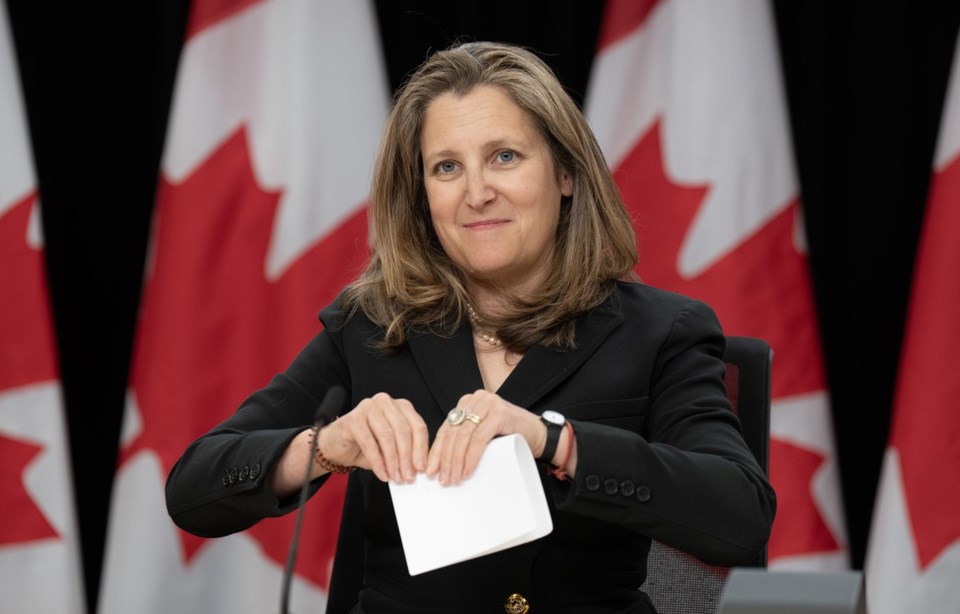OTTAWA — The Liberal government will bring its proposal to increase the inclusion rate on capital gains to the House of Commons before the parliamentary summer break, Finance Minister Chrystia Freeland said Tuesday.
"In the coming weeks, and certainly before the House rises, we will begin the legislative process to implement our increase in the inclusion rate," Freeland confirmed during a news conference.
The finance minister announced the capital gains tax changes as part of her April budget, but left the new inclusion rate out of the budget legislation she tabled last month.
The Liberals must table a motion in the House of Commons before they bring forward the actual legislation.
The government says that even if a bill has not yet passed, the change will take effect on June 25.
The government proposes to make two-thirds of capital gains taxable. Currently, only one-half of the profits made on the sale of assets — such as stocks or secondary real estate property — are taxed.
The higher inclusion rate will apply to all capital gains realized by corporations, while individuals will only face the higher inclusion rate on capital gains of more than $250,000.
The idea has garnered significant attention and pushback.
Lobby groups representing businesses and physicians who expect to be affected by the changes have called on the government to reconsider the increase to the inclusion rate.
However, Liberals have defended the effective tax increase on capital gains, arguing that Canada needs to raise more revenue to pay for things like housing and health care.
The Liberal government estimates the higher inclusion rate will generate $19.4 billion over the next five years.
Introducing the capital gains tax changes in a stand-alone bill will force every federal party to take a position on the proposal.
As Conservative Leader Pierre Poilievre looks to court the working-class vote, it remains unclear how his party will navigate the vote.
Freeland took the opportunity on Tuesday to call Poilievre out for not taking a stance on the proposed tax changes yet.
"I have certainly observed over the past week the Conservative leader equivocating, dodging, deflecting when asked about his position on our plan for tax fairness," Freeland said.
"It is important for Canadians to insist on a clear answer from the Conservatives on tax fairness. And ... depending on what answer we get, Canadians will know whose side the Conservatives are really on."
In response to a question asking how the party will vote, Conservative party spokesman Sebastian Skamski said in an emailed statement: "The legislation you are asking about doesn’t exist yet due to Justin Trudeau’s incompetence, so it’s impossible for us to weigh in on the matter."
While they were quick to come out and oppose the budget after it was presented last month, they have yet to say whether they will support a capital gains bill.
In an opinion piece penned for the National Post earlier this month, Poilievre suggested he won't fight against the tax changes on behalf of business lobbies.
Instead, he said businesses themselves need to convince Canadians why the policy is a bad idea.
This report by The Canadian Press was first published May 21, 2024.
Nojoud Al Mallees, The Canadian Press




